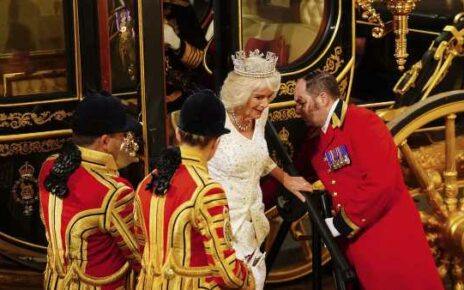Save articles for later
Add articles to your saved list and come back to them any time.
Military veterans and former Defence public servants will face up to 20 years in jail if they undertake unauthorised work for a foreign government under new laws designed to protect the nation’s secrets from espionage.
The legislation, to be introduced into parliament by Defence Minister Richard Marles on Thursday, follows reports last year that China was headhunting former Australian Defence Force fighter pilots to train its armed forces.
Defence Minister Richard Marles will introduce the legislation on Thursday.Credit: Alex Ellinghausen
Former Defence staff will not need ministerial approval to work for Australia’s Five Eyes intelligence alliance partners – the United States, United Kingdom, Canada or New Zealand. This carve-out reflects the fact that officials believe it is riskier for former Defence staff to work for nations such as China or Russia than nations with whom Australia has close security ties.
But the government will argue that greater protections are necessary to provide confidence to the US and UK that Australia will protect any military secrets transferred under the AUKUS pact, including closely guarded nuclear-powered submarine technology.
“The importance of protecting our nation’s secrets and sensitive information cannot be overstated,” Marles is expected to tell parliament while introducing the Defence Amendment (Safeguarding Australia’s Military Secrets) Bill.
“The protection of our nation’s secrets and sensitive information is central to preserving Australia’s national security and to keeping Australians safe.”
Under current laws, it is already illegal for Australians who work or have worked in Defence to disclose military secrets obtained during their employment with the Commonwealth.
The new legislation goes further by requiring certain former Defence Force members and public servants to obtain authorisation if they intend to work for a foreign military, government or government entity.
If those former employees undertake work for foreign nation-states without approval, they will face 20 years’ imprisonment.
The same penalty will apply to any Australian who seeks to provide training relating to military techniques or controlled weapons to, or on behalf of, a foreign military organisation or government without approval.
“This authorisation framework is not intended to prevent Australians from working overseas or with all foreign governments or militaries,” Marles is expected to say.
“Rather, our legislative intent is to prevent individuals with knowledge of sensitive Defence information from training or working for certain foreign militaries or governments where that activity would put Australia’s national security at risk.”
In deciding whether to approve work for a foreign military, the defence minister will consider the type of work the individual performed, the information they had access to, the length of their service and the country involved.
American authorities are seeking to extradite Australian citizen and former US Marine Corps pilot Daniel Duggan to face charges of training foreign pilots when he was an instructor at a South African flight academy between 2010 and 2012. Duggan, who has been in custody since last October, has rejected the charges and maintains that he was training civilian pilots.
The legislation comes as it grows increasingly unlikely the army will ever use its MRH-90 Taipan helicopters again following the July crash in the Whitsundays that killed four crew members.
A Defence spokesperson confirmed separate investigations into the MRH-90 crash by the Queensland coroner, the inspector-general of the Australian Defence Force, the Defence Flight Safety Bureau and Comcare were either underway or about to begin.
Marles has said the helicopters will not be allowed to fly again until investigations are complete, but the inquiries are being hampered by an inability to recover crucial parts of the aircraft from the ocean.
The Defence Flight Safety Bureau investigation is expected to take around 12 months, finishing just before the Taipans are due to be retired at the end of next year and replaced by a fleet of Black Hawk helicopters from the US.
“These investigations are ongoing and will take as long as required,” the spokesperson said.
“Defence is committed to supporting each investigation.”
Cut through the noise of federal politics with news, views and expert analysis from Jacqueline Maley. Subscribers can sign up to our weekly Inside Politics newsletter here.
Most Viewed in Politics
From our partners
Source: Read Full Article



